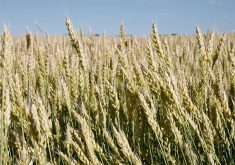Four Saskatchewan farm organizations have asked the provincial government to examine the proposed merger of Bunge and Viterra.
The Agricultural Producers Association of Saskatchewan, SaskCanola, SaskWheat and SaskBarley wrote to agriculture minister David Marit asking for a “thorough risk assessment.”
The Saskatchewan government said it is closely watching developments but this falls under federal jurisdiction. The Competition Bureau and Transport Canada have both launched reviews.
“It is our understanding that the review by the Competition Bureau will focus on the impact of the acquisition on efficiency and any anti-competitive impacts, which is consistent with the Competition Bureau’s past experience with mergers and acquisitions in Canada’s grain sector,” it said in an emailed statement.
Read Also

More factors affecting winter weather
When you combine a weak La Niña, early Siberian snow, and a warm northern Pacific, it’s easy to see why long-range winter forecasting is so complex.
“The review by Transport Canada will be focused on the public interest, recognizing that competition at ports is necessary for access and pricing.”
The province said Transport Canada is expected to consult widely with stakeholders as part of its review.
The four farm groups said previous government assessments of the proposed BHP Billiton and Potash Corp. of Saskatchewan merger in 2010 and the Glencore-Viterra merger in 2012 were valuable precedents, and they advocated for the same approach in this case.
They asked for analysis in six areas: historical consolidation impacts, regional competition in grain handling, implications for markets and the supply chain, port infrastructure consolidation and international market access, market concentration and ownership, and potential effects on grain industry jobs in the province.
A July survey of RealAgristudies’ farmer insight panel found 79 percent of western Canadian farmers are concerned about the proposal and Saskatchewan farmers were most concerned.
The government said Bunge and Viterra both have a strong presence in Saskatchewan.
“Many of the areas of consideration raised by SaskBarley, APAS, SaskCanola and SaskWheat will be covered in the two reviews,” it said.
Bunge announced in June a cash and stock deal to acquire Viterra; both boards unanimously approved it.
Viterra shareholders would get about 65.6 million shares of Bunge stock, worth about $6.2 billion, and $2 billion in cash.
Bunge would assume $9.8 billion of Viterra debt, which the company said is associated with $9 billion of highly liquid readily marketable inventories.
The Competition Bureau announced its review shortly after, and Transport Canada announced its review in late September.
According to Transport Canada, a public interest assessment of the acquisition must be done by June 2, 2024. Transport minister Pablo Rodriguez said both companies have port terminal interests and that access for users, especially farmers, is necessary.
















